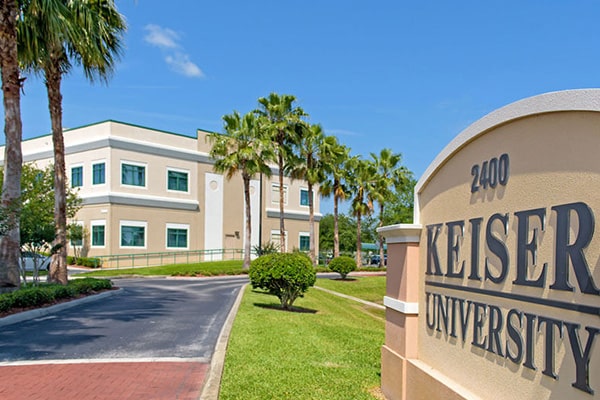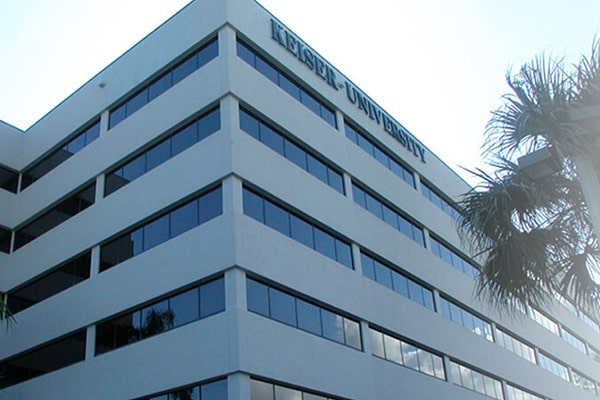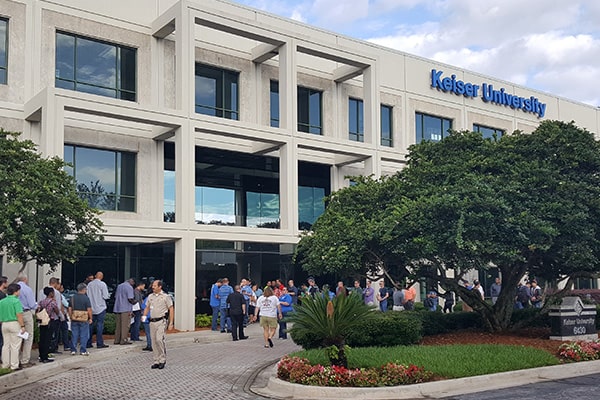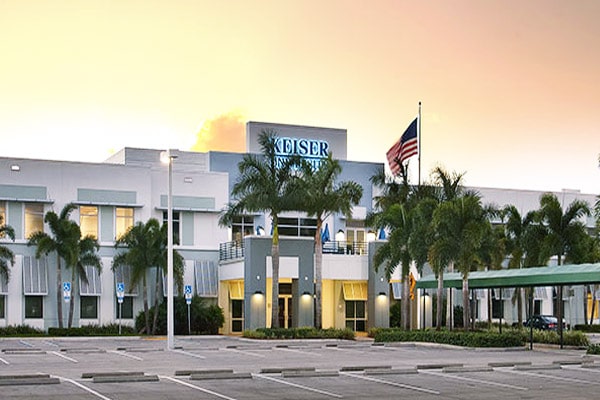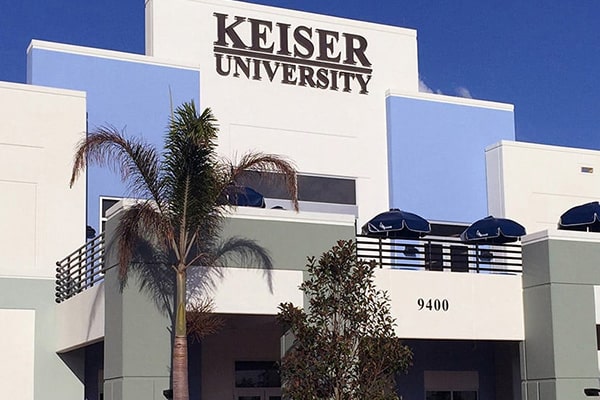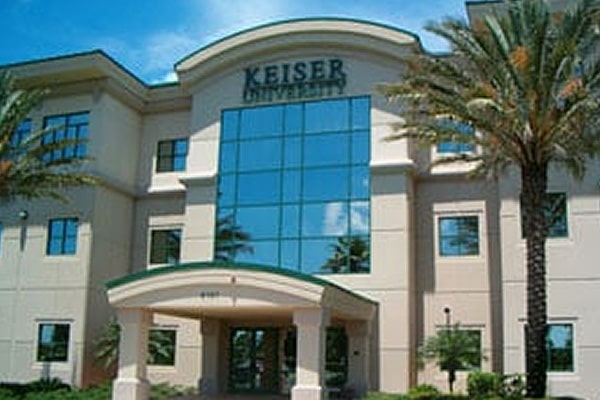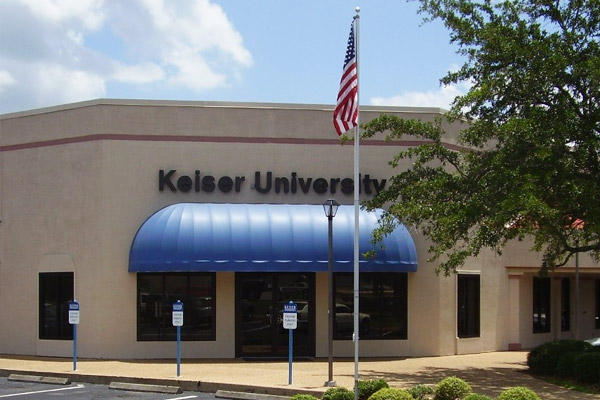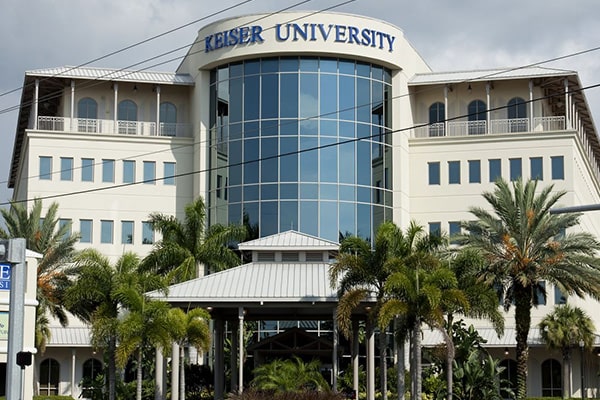Radiologic Technology, AS
Keiser University’s Associate of Science degree in Radiologic Technology prepares students for entry-level positions in the profession, producing radiographic images in accordance with standardized practices and procedures. The program provides radiologic information including medical terminology, patient care, radiographic procedures, radiation protection, equipment operations and image production and evaluation. The program’s graduates are eligible to take the national certification examination administered by the American Registry of Radiologic Technologists and are eligible to be licensed by the State of Florida to practice Radiologic Technology.
Mission Statement
Keiser University’s Associate of Science degree program in Radiologic Technology provides both an educational and clinical foundation to produce competent graduates for entry-level positions in radiologic technology and instill the values and concepts of life-long learning in its graduates. Through community clinical partnerships, graduates integrate clinical competence, radiation safety, professional and ethical behavior and communication skills in keeping with the radiologic technologist’s scope of practice.
KU Radiologic Technology Student & Graduate Testimonials
Program Objectives
The program’s mission is defined in the following goals and associated student learning outcomes:
| Goals | Student Learning Outcomes |
|---|---|
| Students will develop and demonstrate effective communication in a healthcare setting. |
|
| Students will apply critical thinking skills to solve complex problems in the healthcare setting. |
|
| Students will demonstrate clinical competency through the application of best practices and adherence to safety standards. |
|
| Students will demonstrate interpersonal skills fostering teamwork and professional relationships. |
|
Program Highlights
Keiser University’s Radiologic Technology program consists of two general education semesters followed by four core curriculum semesters for a total of six semesters or twenty-four months. Keiser University conducts courses on a year round basis with scheduled breaks each year. The Radiologic Technology curriculum is a sequence of core courses with three start times per year; Winter, Summer and Fall semesters. Students accepted into the Radiologic Technology Program are required to successfully complete all general education courses with a cumulative GPA of 3.0 (on a 4.0 scale) prior to entering the Radiologic Technology core component. Students that do not meet this requirement will not be permitted to enter the Radiologic Technology Program. The Radiologic Technology core component is designed in a sequential manner in that each program course is a prerequisite for the subsequent program course offered; therefore, successful completion of each course in sequential order is a requirement for progression throughout the program.
Clinical Education
Clinical Education is an integral part of the curriculum of the Radiology Technology program. The program affiliates with a variety of clinical sites geographically dispersed throughout the surrounding area (for locations of the program’s JRCERT recognized clinical affiliates refer to www.jrcert.org , type in campus of interest. The clinical education component will consist of forty-hour weeks in an assigned facility for supervised practice of acquired knowledge and skills. Clinical assignments may include day, evening, and weekend assignments. Expenses related to clinical education, including clinical education site requirements, travel and food are the responsibility of the student. Prior to clinical assignments students will be required to provide proof of health insurance, along with health records reflecting immunizations, titers and lab tests (TB test, MMR, Varicella, Tetanus, Hepatitis B). The student will also be required to complete specific instruction and training for: CPR certification, OSHA/HIV, HIPAA and other field related areas the Program and University deem necessary. It is also recommended the student receive the Hepatitis B vaccine. Flu immunization is required by some clinical education sites.
Prerequisites for Major Courses
- Background check and drug screening when applicable;
- Minimum grade of “C” for general education courses;
- Cumulative grade average of 3.0 on a scale of 4.0.
Program Outline
To receive an Associate of Science degree in Radiologic Technology, students must earn a total of 90.0 credit hours.
Each major course is a prerequisite for the subsequent course and therefore must be completed with a minimum grade of “C” in order to proceed successfully through the program.
Program requirements are as follows:
Lower Division Courses
| Radiologic Technology Major Courses (64.0 credit hours) | |
|---|---|
| Introduction to Radiologic Technology | 5.0 credit hours |
| Radiologic Imaging | 5.0 credit hours |
| Radiologic Science I | 5.0 credit hours |
| Radiologic Science II | 5.0 credit hours |
| Radiologic Procedures I | 4.0 credit hours |
| Radiologic Procedures II | 4.0 credit hours |
| Radiologic Procedures III | 4.0 credit hours |
| Radiologic Procedures IV | 4.0 credit hours |
| Clinical Rotation I | 3.0 credit hours |
| Clinical Rotation Ia | 3.0 credit hours |
| Clinical Rotation II | 3.0 credit hours |
| Clinical Rotation IIa | 3.0 credit hours |
| Advanced Radiologic Imaging I | 5.0 credit hours |
| Advanced Pathophysiologic Imaging | 5.0 credit hours |
| Clinical Rotation III | 3.0 credit hours |
| Clinical Rotation IIIa | 3.0 credit hours |
Program Effectiveness Data for JRCERT Accredited Programs
Click on the campus link below to view the program’s 1st attempt pass rate, job placement and student retention rates.
- Daytona Beach Campus
- Fort Lauderdale Campus
- Jacksonville Campus
- Lakeland Campus
- Melbourne Campus
- Miami Campus
- Port St. Lucie Campus
- Sarasota Campus
- Tampa Campus
- West Palm Beach Campus
Program Effectiveness Data for Additional Campuses
State Licensure Disclosure
Radiologic Technology Programs Accreditation Statuses
Click on the appropriate campus below to see the accreditation statement of each Keiser University Radiologic Technology program:
- Daytona Beach Campus
- Fort Lauderdale Campus
- Jacksonville Campus
- Lakeland Campus
- Melbourne Campus
- Miami Campus
- Port St. Lucie Campus
- Sarasota Campus
- Tampa Campus
- West Palm Beach Campus
The JRCERT is the only agency recognized by USDE and CHEA for the radiologic sciences.
Visit www.jrcert.org for more information.
The accreditation status of the Radiologic Technology program is published on the Accreditation page of the University website and may be viewed by clicking here. This information is also published in the University Catalog which may be accessed by clicking here.








